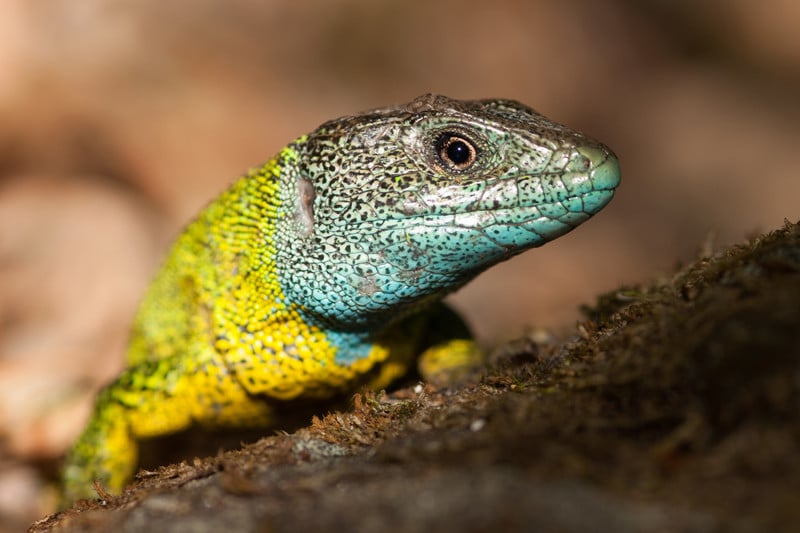Lizards are fascinating creatures that inhabit a variety of ecosystems around the world, and understanding what do lizards eat is essential for anyone interested in these reptiles. Their diet varies widely depending on their species, habitat, and size, making it crucial for pet owners, wildlife enthusiasts, and researchers alike to grasp the intricacies of lizard feeding habits. In this article, we will explore the dietary needs of different lizard species, their feeding behaviors, and tips for providing a balanced diet for pet lizards.
The diet of lizards can be broadly categorized into three main types: insectivores, herbivores, and omnivores. Each category has distinct dietary requirements that influence their growth, health, and survival. Understanding these dietary classifications not only helps in caring for pet lizards but also enhances our knowledge of their role in the ecosystem. In addition, the nutritional needs of lizards can vary based on factors such as age, activity level, and environmental conditions.
Whether you are a seasoned lizard enthusiast or a newcomer to the world of reptiles, this guide will provide you with valuable insights into what lizards eat and how to ensure they receive the proper nutrition. So, let’s dive deeper into the captivating world of lizards and their diets!
Table of Contents
- 1. Diet Categories of Lizards
- 2. Insectivorous Lizards
- 3. Herbivorous Lizards
- 4. Omnivorous Lizards
- 5. Feeding Pet Lizards
- 6. Conclusion
1. Diet Categories of Lizards
Lizards can be classified into three main dietary categories based on their eating habits: insectivores, herbivores, and omnivores. Each category has unique dietary requirements that are essential for their health and well-being.
2. Insectivorous Lizards
Insectivorous lizards primarily feed on insects and other small invertebrates. This category includes many common pet lizards, which require a diet rich in protein to thrive.
2.1 Common Insectivorous Lizards
- Leopard Gecko
- Horned Lizard
- Blue-Tongue Skink
2.2 Feeding Behavior of Insectivores
Insectivorous lizards often exhibit active hunting behaviors, using their keen eyesight and quick reflexes to catch prey. They may consume a variety of insects, including:
- Crickets
- Mealworms
- Roaches
- Waxworms
3. Herbivorous Lizards
Herbivorous lizards primarily consume plant-based diets, including leaves, fruits, and vegetables. These lizards require a diet high in fiber to support their digestive systems.
3.1 Common Herbivorous Lizards
- Green Iguana
- Uromastyx
- Spiny-Tailed Iguana
3.2 Nutritional Needs of Herbivores
Herbivorous lizards need a varied diet to obtain essential nutrients. Common food items include:
- Dark leafy greens (kale, collard greens)
- Fruits (mango, papaya)
- Vegetables (squash, bell peppers)
4. Omnivorous Lizards
Omnivorous lizards consume a mix of plant and animal matter, making their dietary needs quite flexible. This adaptability helps them thrive in various environments.
4.1 Common Omnivorous Lizards
- Bearded Dragon
- Collared Lizard
- Chinese Water Dragon
4.2 Importance of a Balanced Diet for Omnivores
For omnivorous lizards, a balanced diet is essential for maintaining health. They should be fed a variety of foods, including:
- Insects (crickets, mealworms)
- Greens (romaine lettuce, dandelion greens)
- Fruits (berries, apples)
5. Feeding Pet Lizards
When caring for pet lizards, it is crucial to understand their specific dietary needs based on their species. Providing a balanced diet not only promotes healthy growth but also prevents nutritional deficiencies.
Here are some tips for feeding pet lizards:
- Research your lizard's dietary preferences and restrictions.
- Provide fresh food daily and remove any uneaten portions.
- Consider using supplements, such as calcium and vitamins, to ensure proper nutrition.
- Monitor your lizard's weight and health regularly.
6. Conclusion
In conclusion, understanding what do lizards eat is fundamental for anyone interested in these reptiles. By categorizing lizards based on their diets—whether insectivores, herbivores, or omnivores—we can better appreciate their nutritional needs and feeding behaviors. For pet owners, providing a balanced diet tailored to their lizard's specific requirements is essential for promoting health and well-being.
We encourage you to leave your thoughts in the comments below, share this article with fellow reptile enthusiasts, and explore more articles on our website to deepen your knowledge of lizards and their care!
Thank you for reading, and we look forward to seeing you back on our site for more engaging and informative content!


